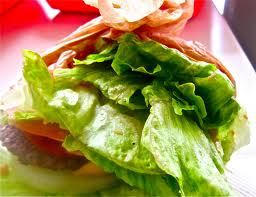Why You Are Not Losing Weight!
If you’re constantly asking yourself the question 'Why am I not losing weight' then this article is for you. Maintaining a healthy weight is a challenge for most people. With so many tasty foods available to us these days as well as the constant advertising we see and hear each day it’s enough to sidetrack any motivated dieter from their healthy eating plan. The problem a lot of us face is that we select the wrong types of food to be consuming in our diets. More often than not we are unaware of the high fat and calorie content of foods. Let’s take a look at some of the most common mistakes you may be making in your current diet and how you should correct them in order to lose weight:
Believing That Exercise Gives You The Right to Eat What You Want.
It’s a common scenario. A person looking to lose weight will start exercising and incorporating cardio into their daily routine. He/she visits the gym on a regular basis and performs their workouts to near exhaustion. After three weeks, the person is shocked to step on the scale and find they have not lost weight, or even worse gained weight! Many people unconsciously increase their food intake when exercising in the belief that they won’t put on weight because they are burning it all off through exercise.
While exercise does burn calories and helps boost your body’s metabolism, the effect isn’t dramatic enough to compensate for the additional junk food you’ve been consuming each day as a reward for exercise. Overcome this common dieting mistake by sticking to a healthy eating plan and rewarding yourself maybe one day a week (in moderation). Add a cheat day or cheat meal if you need to throughout the week to help keep you sane and satisfy cravings. It’s fine to reward yourself for exercising but don’t always make food the reward.
Not keeping a food diary.
Most people are not good at judging how much food they eat on a daily basis. Those little snacks and hot chocolates that are consumed almost subconsciously can all ramp up your daily calorie intake over time. The best way to avoid unnecessary calories creeping into your diet is to keep a regular food journal where you right down everything you eat. Every food, drink or snack you consume throughout the day should be written down in your food diary.
At the end of the day add up your total amount of calories and do an honest assessment. Did you meet your daily calorie requirements to help you lose weight or did you exceed them? Keeping a regular food journal will make you more aware of how much you’re really eating and help you cut out the empty calories from your diet. The secret to weight loss and a flat stomach is calories in versus calories out. Calories are what will determine whether you put weight on, maintain it or lose it. Keep track of your diet and you will lose weight a lot easier.
Not planning your meals well enough.
When you don’t plan your meals, you end up falling victim to cravings and the consumption of unhealthy, high calorie foods. When you leave for work in the morning, carry a lunch along with some healthy nutritious snacks. If the work place doesn’t have a canteen that serves healthy low calories foods then it’s also a good idea to prepare your own and bring them into work.
Use Tupperware and cook your own meals the night before. This is a great way to not be restricted when it comes to eating a healthy and balanced diet. Having healthy meals and food with you should prevent you from eating foods high in fat as well as calories. You’ll also be prepared when everyone else at the office is ordering Mc Donald’s or eating unhealthy microwave meals. Planning gives you the power to resist those high calorie temptations.
Not reading labels.
Read food labels before you buy items you are unsure of to see how many calories they contain and how much fat etc they have in them. Learn to read and understand a food label so you don’t fall victim to misleading advertising. Just because a product is labeled as “healthy” or “fat free” doesn’t necessarily make it a healthy choice. A healthy diet should be made up of lean cuts of meat, complex carbohydrates, healthy fats, as well as fruit and vegetables. By correcting the above mistakes and paying more attention to what you eat, you will gain more control over your eating habits and make even more progress towards your weight loss goals.
-
How to Burn 500 Calories a Day
Did you know that in order to lose one pound that equates to 3,500 cal
-
Effects Of Sleep On Fat Loss
If you are like most people you could stand to lose a few pounds and
-
Waist Size Linked to Mortality, Top Weight Loss Supplements
It’s no secret that American waistlines are continuing to exp
-
How to lose weight by dieting without exercise
No matter how small you eat, there’s no substitute for exercise.
-
Are Your CoWorkers Making You Fat Avoiding Unexpected Treats
Taming the See Food Eat Food ResponseWhat happens when youre just mind
-
Use Alpha-Lipoic Acid To Lose Weight
Alpha-lipoic acid(ALA) is an antioxidant that is produced in the human
- DON'T MISS
- 7 Super Quick Diet Weight Loss Tips
- How Thin People Can Put On Muscle Weight
- Can The Internet Keep You Healthy?
- Discover The Secrets Of Using An Abdominal Exercise Machine For Sexy Scuplted Abs
- Every thing you need to know about side effects of green tea for weight loss
- Acomplia Rimonabant: An Effective Weight Loss Drug
- 9 Things That Every Girl Who Has Gained Weight Can Relate To
- Starting A Gym Plan As Your New Year’s Resolution? How To Make sure you Stick To It
- Tips to Lose Weight for Men Over 50
- Weightloss Secrets Foods Found Everyday In Our Kitchen




